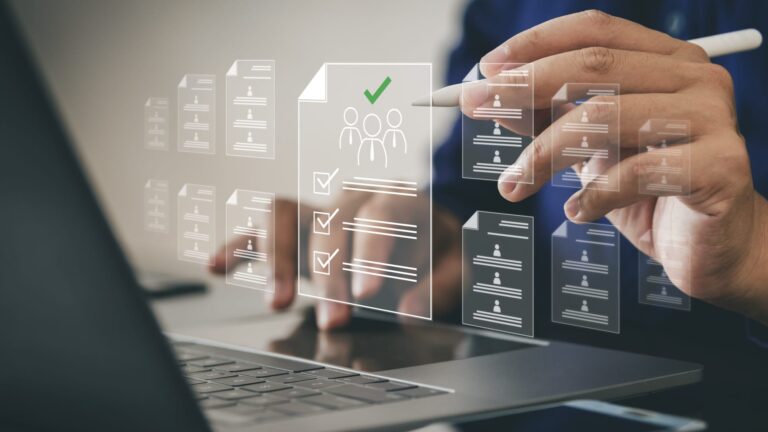
Artificial intelligence is changing the way human resources leaders envision roles, skills, and experiences of their workforce, as generative AI transforms many jobs.
“AI is reshaping the future of work by redistributing tasks within jobs.”
Those were the words of a U.S.-based chief human resources officer in response to a flash survey CNBC circulated last week among members of the CNBC Workforce Executive Council, a collection of public and private company human resources leaders.
When asked if AI is currently having an impact on jobs at their firms, more than two-thirds (67%) of senior human resources executives polled in the CNBC survey said it is. The survey defined “impact” as having a significant portion of an employee’s previous tasks automated or changing the way they work on a daily basis.
About 50% of the 21 senior HR leaders who responded said AI impacted fewer than half of the jobs at their organizations. Meanwhile, 17% said nearly half or more than half of the jobs were affected, and 11% reported being unsure. And, 22% said it has “no impact” on jobs at all.
“It is still too early to tell,” said one HR leader in comments about the survey. “Most organizations have not completely integrated AI tools into every job, nor have they identified ways to measure the impact.”
That may change dramatically in the next 12 months, as 89% of the senior leaders surveyed say AI will impact jobs next year. About 45% said AI will impact nearly half or more than half of all jobs, and 44% said it will affect less than half of all jobs. About 11% said no jobs will be impacted.
Nearly two in five senior leaders (38%) said their firms will maintain current headcounts in the next 12 months. The number of HR leaders at firms that expect a headcount increase and those at firms that expect a headcount decrease was equal, at 29%.
For leaders planning to reduce their workforce over the next year, the “general need to cut costs” was the only reason cited by survey respondents, rather than inflation, tariffs, decreased demand, or efficiency gains from AI.
Three out of five (61%) of the leaders in the CNBC survey stated that AI has made their company more efficient, while 39% said it’s too early to tell.
And 78% said AI has made their workforce more innovative, while 17% said AI has not yet made a significant impact on their workforce.
New research shows that by reshaping work, AI could enhance innovation and increase efficiency, possibly leading to a shorter workweek. A new study from the London School of Economics finds that employees who use AI for work tasks save an average of 7.5 hours per week.
Roughly 1 in 4 (or 26%) of the jobs posted on career site Indeed over the past year are poised to “radically transform” due to AI, according to a September report by Indeed.
Learning how AI can augment human interactions is critical, senior HR leaders say. As one WEC member noted: “It’s an opportunity to accelerate the human experience, not replace it.”
SIGN UP: Money 101 is an 8-week learning course on financial freedom, delivered weekly to your inbox. Sign up here. It is also available in Spanish.

